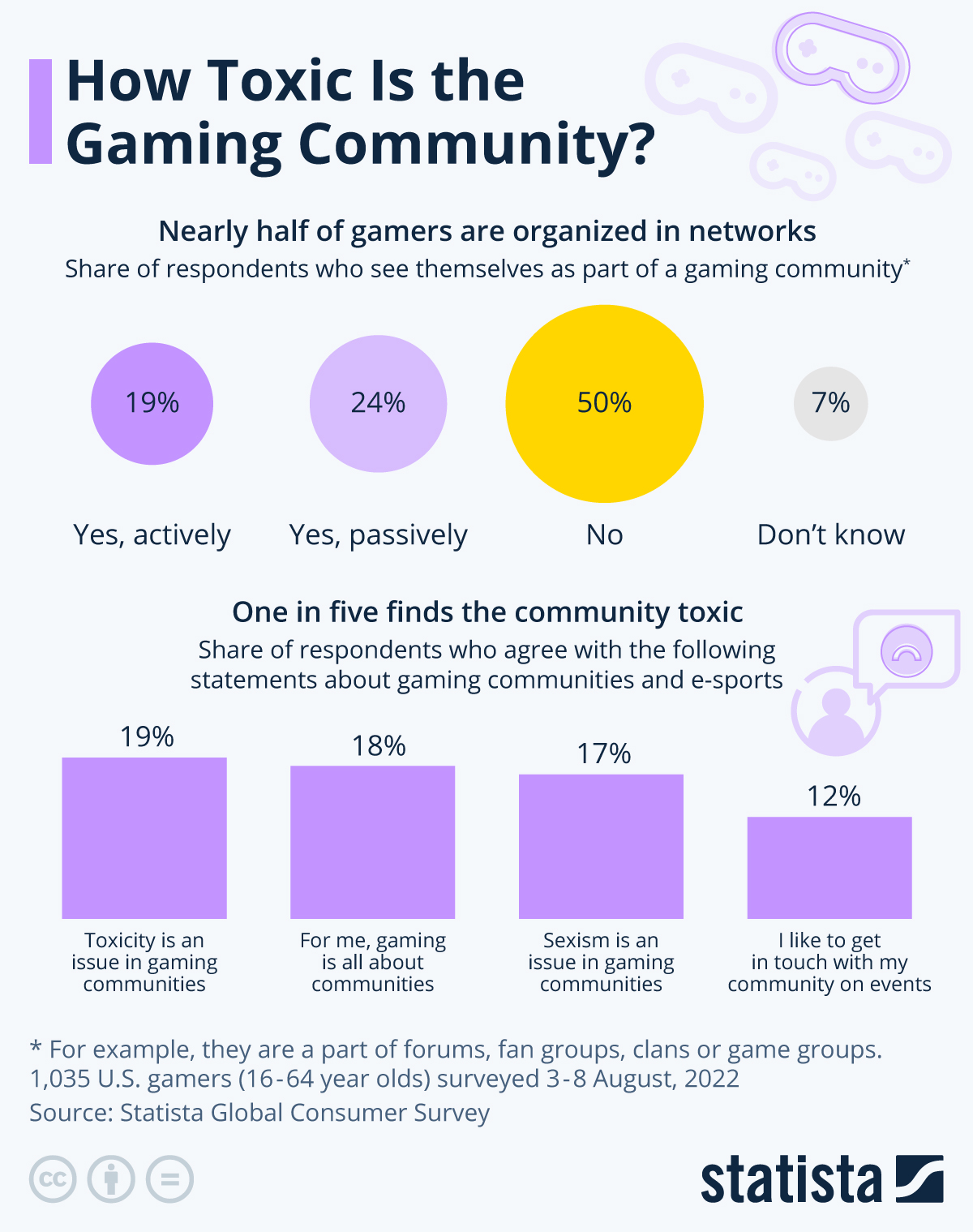The toxicity that has developed throughout time in the gaming world was brought to light with ‘Gamergate’ in the year 2014. Several female gamers reported that they has been a target of bullying, sexual harassment and even received death threats from other online users. This dangerous world of anger, prejudice and misogyny became clear for the world to see.
Statistics from Statista’s Global Consumer Survey (GCS) shows
that even several years later the toxic behavior in online gaming community hasn’t
ended. Data shows that approximately one in five U.S. gamers report that sexism
and toxic behavior are issues they have to face till date.
Gamergate has been a turning point in the gaming industry as it has worked to make online gaming spaces safer and comprehensive than before for its users. After the pandemic, the importance and usage of building virtual connections has increased anyway and it has benefited a lot of people thus making the community stronger.
The latest data provided by GCS shows that around 43% of
gamers based in the U.S. consider themselves as a part of an online community
be it a fan, or a part of any forum, clan or a game group. It also shows that
18% of people go with the mindset that gaming for them is all about communities
while 12% of this population says that they like to connect with other
community members at events. Having these positive responses, still one in each
5 people think that the gaming community is toxic.
In order to protect the committed users and maintain a supportive
culture, many clans and servers, chat platforms and gaming companies like
Discord have taken serious steps like active community management, and zero tolerance
policy for any indecent behavior. They provide clear guidelines so that people
are aware before joining the community.


